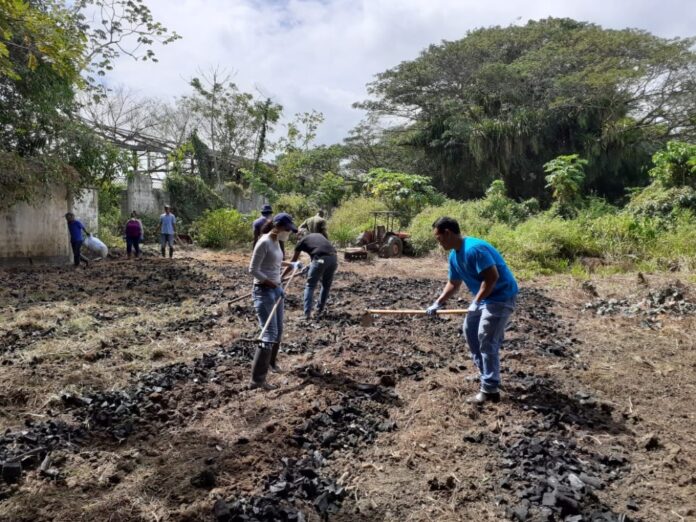
It is a fact. To survive, we need healthy soil as all of our fruits and vegetables to come from this important source.
According to The Food and Agriculture Organization of the United Nations (FAO)’s State of Knowledge of Soil Biodiversity Report (2020), 95% of the world’s food production relies on the ecosystem services provided by soil. Healthy soil is vital for food safety and security. In the Caribbean, protecting soil quality through reducing pollution and contamination is vital to sustaining access to safe, healthy, and affordable food in the region. Threats from soil pollution and contamination can have major effects on crop yields and quality.
Annually, World Soil Day is celebrated on December 5 to highlight the importance of soils and call for increased awareness and actions to safeguard soil health and protect the prospects of a healthy future. The FAO Sub-Regional Office for the Caribbean has been working to address soil contamination through its Caribbean Pesticide Management Project. Commencing in 2016, a main component of the project is to build capacities of national authorities personnel to identify and remediate pesticide-contaminated sites.
The use of pesticides in agriculture, improper disposal of empty pesticide containers, and poor storage of obsolete pesticide stocks all potentially threaten soil health including groundwater and therefore surrounding waterways through contamination from direct application and residues. This could have long-lasting effects on human health and the environment, including increased risk of developing chronic diseases such as cancer and asthma, and short-term problems such as dizziness, nausea, skin and eye irritation, and headaches. It can also reduce soil fertility over time and harm other important non-target organisms such as birds, fish, beneficial insects, and plants.
It is against this background that FAO in collaboration with the Department of Agriculture, Livestock, and Fisheries at the University of Suriname and The Centre for Agricultural Research, Faculty of Food and Agriculture at The University of the West Indies (UWI), St. Augustine Campus in Trinidad and Tobago embarked on a pioneering project in the region. The project will develop strategies for the bio-remediation of pesticide-contaminated soils using low-cost, easily sourced materials found in the Caribbean. The results from the pilot site located in Marienburg, Suriname, demonstrated that natural resources like charcoal, manure, and a microbial mix can potentially lower contaminants in pesticide-contaminated soil.
According to Gaius Eudoxie, Senior Lecturer in Soil Science and Deputy Dean for Outreach at the Faculty of Food and Agriculture, UWI, the project addressed soil health and quality through remediation, allowing for productive use of the soil. He stated, “This study, a first of its kind in Caribbean SIDS to demonstrate the potential for local solutions to remediation of contaminated soils and adds to the existing pool of knowledge.”
Regional Project Coordinator with FAO, Guy Mathurin emphasized the organization’s commitment to this area of work and emphasized that “The FAO regional pesticide management project will support Suriname authorities to continue the contaminated soil bioremediation, expanding the pilot field trial.”
The successful methodologies and guidance for national authorities will be published in a Regional Soil Inspectors Manual developed by FAO in collaboration with the Caribbean Group of Pesticide Control Boards (CGPC).
Along with Suriname, the project is working with other countries in the region including Barbados, Dominica, Jamaica, and Guyana to prevent empty plastic pesticide containers from ending up in the environment and residues entering the soil. Through the development of empty container management schemes, pesticide containers will be triple rinsed, collected, and disposed of soundly or recycled. This will help minimize contamination of soils from residues of pesticide containers and instead provide viable and sustainable alternatives for disposal.
Although more “in-depth” studies need to be conducted; up to this point, Caribbean countries have not reported the presence of many potentially pesticide-contaminated sites which is promising for a region that relies heavily on healthy soil for food security.


